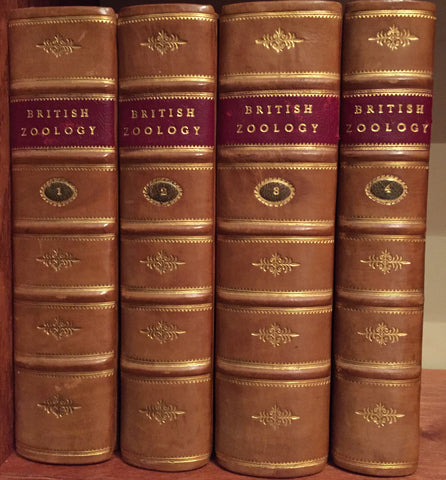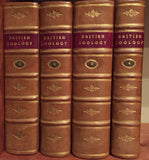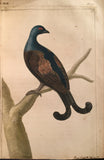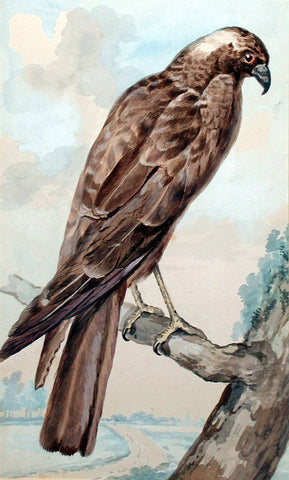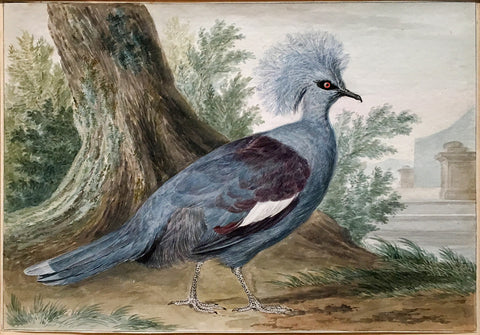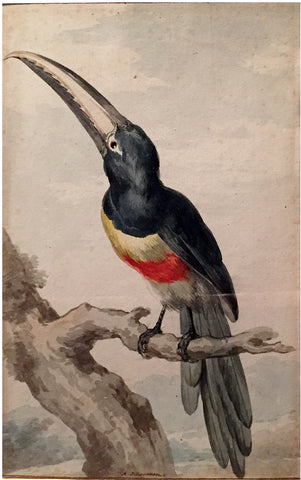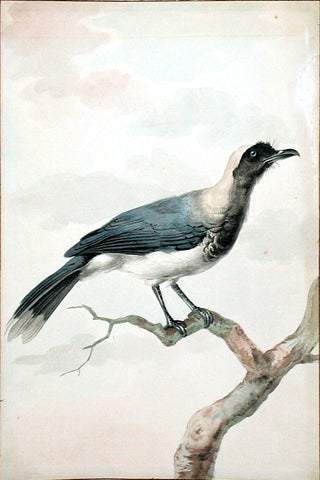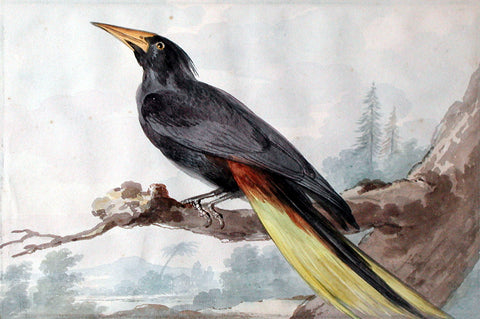Thomas Pennant (British, 1726-1798), The British Zoology
Thomas Pennant (British, 1726-1798)
The British Zoology
Published by London: Benj. White, 1776-1777, 1777
4 volumes. 8vo (7 3/4 x 5 inches). Engraved title-page in each volume, letterpress title-pages in volume II and III., half-title in volume IV (lacking letterpress title-page and 8 leaves of preliminaries in volume one). 226 engraved plates (some folding) after drawings by P. Paillou, G. Edwards, and Desmoulins, EXTRA-ILLUSTRATED WITH 71 WATERCOLOR PLATES and an engraved sheet of music (some minor spotting). Contemporary calf (rebacked in the 20th-century to style). Provenance: Thomas Pennant’s own copy, with his manuscript notes throughout; H. Bradley Martin. “To observe and relish the wonders of nature; aided by philosophy” (Pennant) Fourth edition, revised and enlarged. THE AUTHOR’S COPY, copiously annotated throughout by him with scholarly notes, observations, and recording sightings of various birds and animals in the local vicinity. EXTRA-ILLUSTRATED with original watercolor drawings of the engravings, one of the “Black Cock” bird (plate 42 volume one) by Pennant’s friend and illustrator of many of his works Moses Griffith, one or two fish, and more than 60 fine pages of unsigned watercolors of shells, possibly by Paillou. Many of the engravings are in their proof state before letters, the captions supplied in pencil in Pennant’s hand. The “British Zoology” was Pennant’s first book and was first published as a lavish two-volume production in 1761-1766; all subsequent editions were smaller in format and lest costly to produce. However, Pennant never compromised on the illustrations to his prolific writings on natural history and topography, like the illustrations to this the fourth edition demonstrates. Pennant was the consummate naturalist of his day, interested in all that surrounded him, and wishing to educate the publish at large: “To those of a sedentary disposition, this study would not only prove agreeable but salutary: men of that turn of mind are with difficulty drawn from their books, to partake of the necessary enjoyments of air and exercise; But this inconvenience would be remedied, could we induce them to observe and relish the wonders of nature; aided by philosophy, they would find in the woods and fields a series of objects, that would give to exercise charms unknown before.” (Pennant “Preface”). Anker 392 note. From the distinguished library of H. Bradley Martin.
or by email at loricohen@aradergalleries.
We Also Recommend

